'The other 9/11': As US marks attack anniversary, another infamous milestone looms
- Oops!Something went wrong.Please try again later.
- Oops!Something went wrong.Please try again later.
- Oops!Something went wrong.Please try again later.
Nearly 30 years before the 2001 terror attacks on the United States, Sept. 11 was most known for another history-altering event that led to the violent deaths and disappearances of thousands of people.
The other 9/11 happened in 1973, when Chile's government was overthrown by a military coup d'état led by Augusto Pinochet and encouraged by the United States. It was the beginning of a 17-year dictatorship that saw the deaths and disappearances of at least 3,065 people, the brutal torture of thousands more and a child-trafficking system that stole babies from poor mothers and adopted them out in the U.S. and other nations.
As Americans mourn the 22nd anniversary of the Sept. 11, 2001, attacks on the U.S. on Monday, nearly 200,000 Chilean-Americans and millions of Chileans are also marking the 50th anniversary of what's often referred to as "the other 9/11."
“Again a Tuesday, again an 11 September filled with death,” wrote Chilean author Ariel Dorfman about a month after the 9/11 attacks on the U.S. He noted “a parallel suffering, a similar pain, a commensurate disorientation.”
Here's what you need to know about the coup in Chile, what role the U.S. government played in it, Pinochet's reign, and why those events continue to have repercussions in Chile, the United States, and beyond:
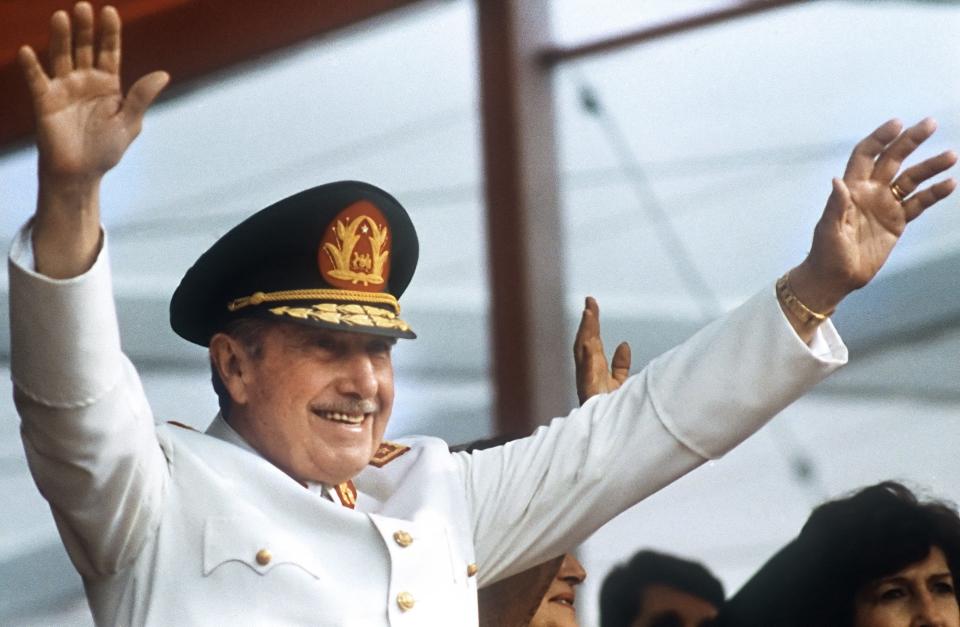
Taken: How Chile's children were stolen and adopted worldwide
When was the coup?
On the morning of Sept. 11, 1973 in Santiago, tanks and bomb-dropping air force jets attacked the presidential palace of socialist leader Salvador Allende, who had been democratically elected just three years earlier on a promise to eradicate poverty.
Though people started making more money under his leadership, producers soon raised prices and supply chains began failing, leading to hoarding, shortages, food lines, and a great deal of anger, said Iván Jakšić, who has been studying and writing books about Chilean politics for decades and is the director of Stanford University's Bing Overseas Studies Program in Chile.
On the morning of the coup, Allende made a final broadcast to the people, refusing to resign his post and calling out: "Love live Chile! Long live the people! Long live the workers!”
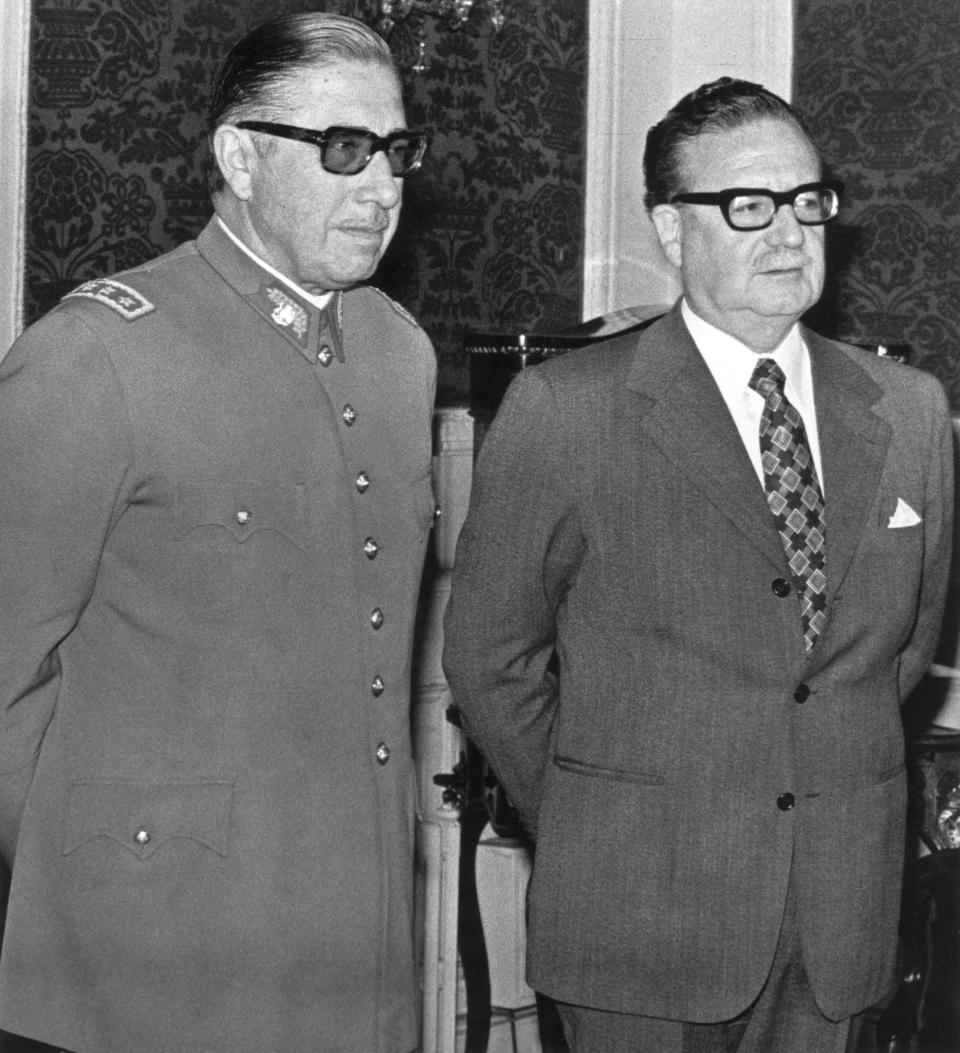
Allende reportedly helped defend the palace before it's believed he fatally shot himself when it became clear that he stood no chance.
Pinochet assumed the presidency two days later, outlawing leftist parties and announcing that there would be no more elections, according to the U.S. State Department's Office of The Historian.
Addressing the nation, Pinochet said that the military was acting "solely out of patriotism, to save the country from the chaos that was caused by the Marxist government of Salvador Allende."
He would rule Chile for 17 bloody years.
What was the United States' role in the coup?
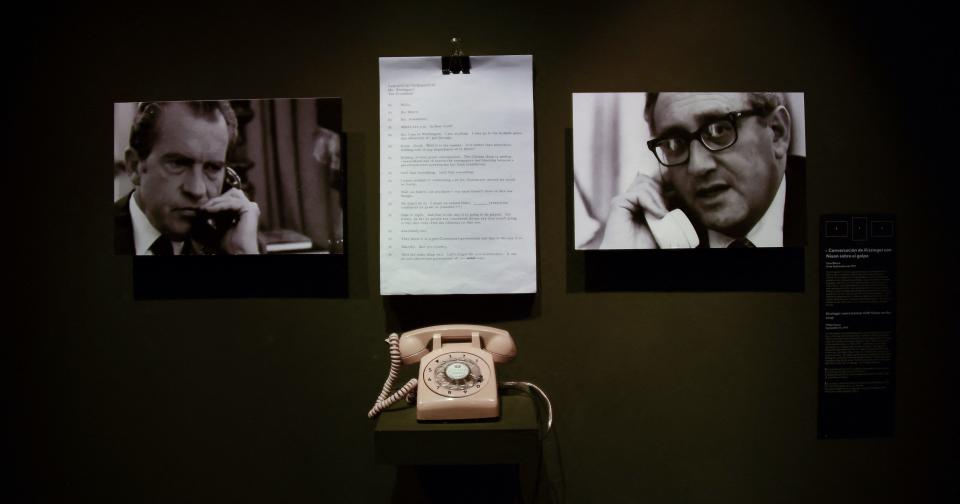
In the grips of Cold War fears of communism, the U.S. government had been working since the early 1960s to shape Chilean politics, culminating with "a massive covert effort to 'bring down'" Allende's government, as President Richard Nixon and his cabinet put it, according to "The Pinochet File."
Published in 2013, the book by National Security Archive senior analyst Peter Kornbluh thoroughly summarizes 30 years of declassified documents that expose the role the U.S. played in usurping Allende and supporting Pinochet.
“We want to do everything we can to hurt (Allende) and bring him down,” then-U.S. Secretary of Defense Melvin Laird said during a National Security Council meeting in 1970, according to one of the documents cited in "The Pinochet File."
About the U.S. role in the coup, former Secretary of State Colin Powell said in 2003: "It is not a part of American history that we are proud of."
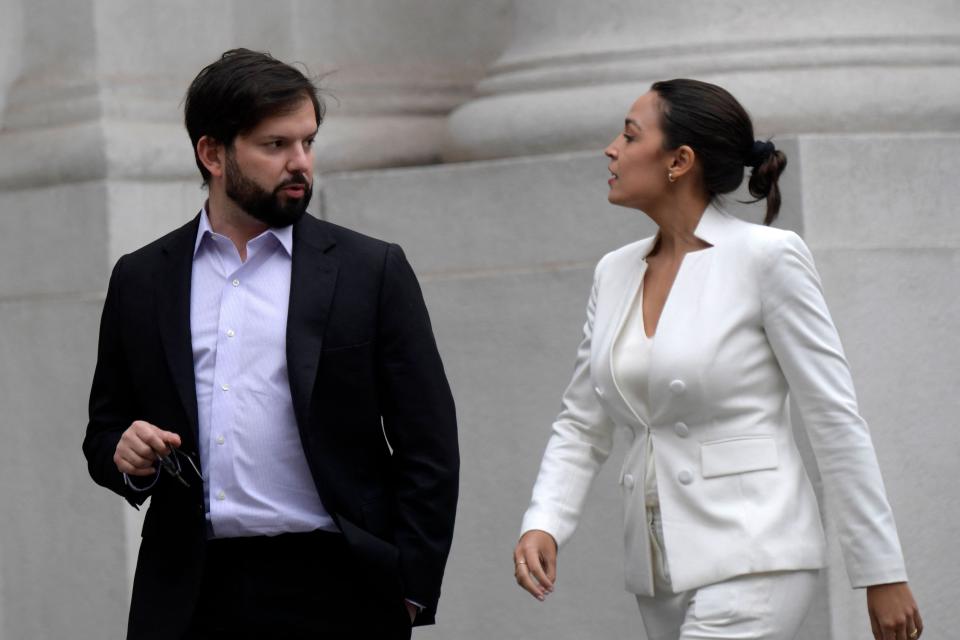
During a visit to Chile last month, Democratic Rep. Alexandria Ocasio-Cortez called on the United States to release the remaining classified documents about its role in the coup, The Associated Press reported.
“It’s very important to frame the history of what happened here in Chile with Pinochet’s dictatorship. And also to acknowledge and reflect on the role of the United States in those events,” she said, AP reported.
What was Pinochet's regime like?
Before Pinochet stepped down in 1990 and Chileans elected Christian Democrat Patricio Aylwin, at least 3,065 people had been killed or disappeared during the regime, including revolutionary folk singer Victor Jara, who was tortured before being riddled with bullets during a massacre in a Santiago stadium.
Tens of thousands more were imprisoned and tortured with rapes, beatings, electric shocks and waterboarding in the following years.
"They basically created a terror state," Jakšić said.

On top of political assassinations within Chile, exiles living in other countries were targeted, including diplomat Orlando Letelier, killed in a car bombing in Washington, D.C. on Sept. 21, 1976, in an operation ordered by Pinochet.
Among upwards of 200,000 Chilean exiles were acclaimed author Isabel Allende, whose father was a first cousin of Salvador Allende, and the family of actor Pedro Pascal ("The Mandalorian," "The Last of Us").
To this day, more than 1,100 people who were disappeared remain unaccounted for. Leading up to the 50th anniversary of the coup, Chile's leftist President Gabriel Boric announced that his government would launch a national search for those who've never been found.
"The only way to build a future that’s free and respectful of life and human dignity is to know the whole truth," he said in a statement announcing the search on Aug. 30.
On top of the executions and torture, human rights groups believe that upwards of 20,000 babies were taken from mostly low-income Chilean mothers and adopted out to unsuspecting parents in the U.S. and other western nations as a key goal of Pinochet's regime to make Chile an economic success.
Watch: The moment Virginia man reunites with mom 42 years after he was stolen from Chile
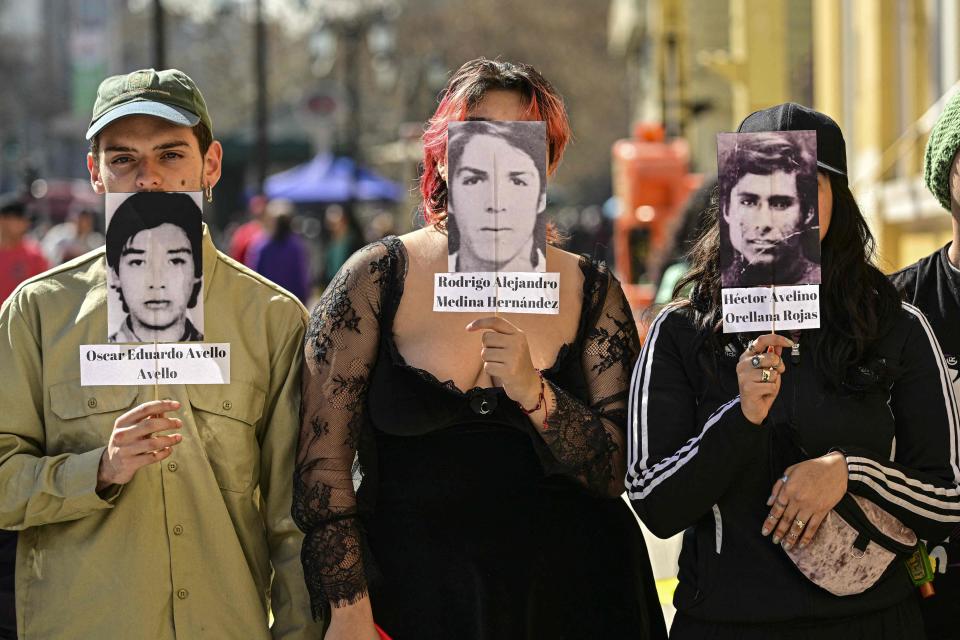
What is the significance of the coup's 50th anniversary
Though Pinochet came to power 50 years ago, Chileans and Chilean-Americans continue to suffer ripple effects.
In the U.S., more and more Americans are finding out the truth about their illegal adoptions from Chile after the practice first came to light in 2014.
Rachel Smolka is among Chile's stolen children.
The 41-year-old, who was raised by loving adoptive parents in Staten Island, New York, only recently found out that she had been stolen as a baby from her birth mother, who'd been told she was dead. Smolka had an emotional reunion with her mother in Chile in February.
"My whole life I felt like I won the lottery to be in this country, in New York City, and to find out my destiny was designed by a ruthless, evil man ... it's something that I have to reconcile with my whole life," she said.

As a New Yorker whose cousin survived the terror attacks and whose husband helped look for survivors in the rubble, Smolka said 9/11 has always been tough for her. Now that she's learned about her past in Chile, it's even harder.
"It's a big deal," she said. "Our Sept. 11 is a horrible day for me. Now to know that there is another very significant and horrific historic event that happened in my birth country, it's quite crazy for me."
Healing: US adoptees stolen as babies from Chile find families, each other in growing support network
'Where I was supposed to be': California man taken as infant in illegal Chilean adoption meets lost family
Democracy again in peril?
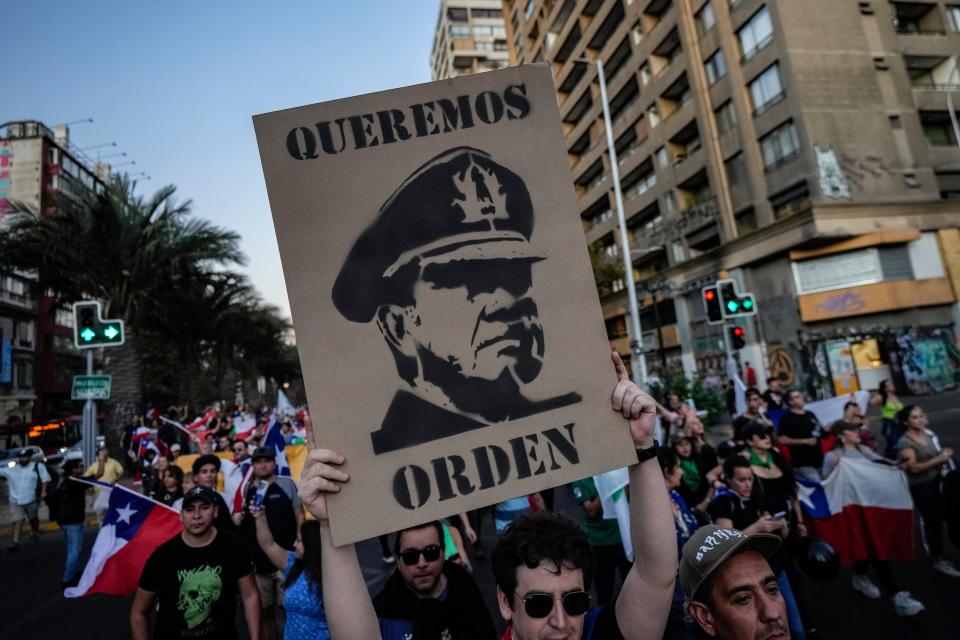
Despite being one of the richest countries in Latin America and living in a democracy, all is not well in Chile.
There’s growing frustration with increasing crime, a flagging economy, and income inequality, with many residents blaming the leftist government and crediting Pinochet’s regime with the country’s emergence from poverty, Jakšić said.
He cited polling showing that more than a third of the country's population feel that Sept. 11, 1973 freed Chile from Marxism.
"More and more people think that the Pinochet regime was justified, that the violation of human rights were regrettable but inevitable ... and strong leaders like Pinochet can be justified," he said, adding that it's important to keep in mind that half of Chile's population was born after the coup and that a good deal of the population supported the coup in the first place, since the targets for death and torture largely were leftist political opponents.
Another recent poll found that a majority of Chileans believe the country needs to prioritize a firm government over human rights.
"People are disillusioned with democracy, and it's been exacerbated by the current government, a leftist government that's very radical in some ways," Jakšić said.
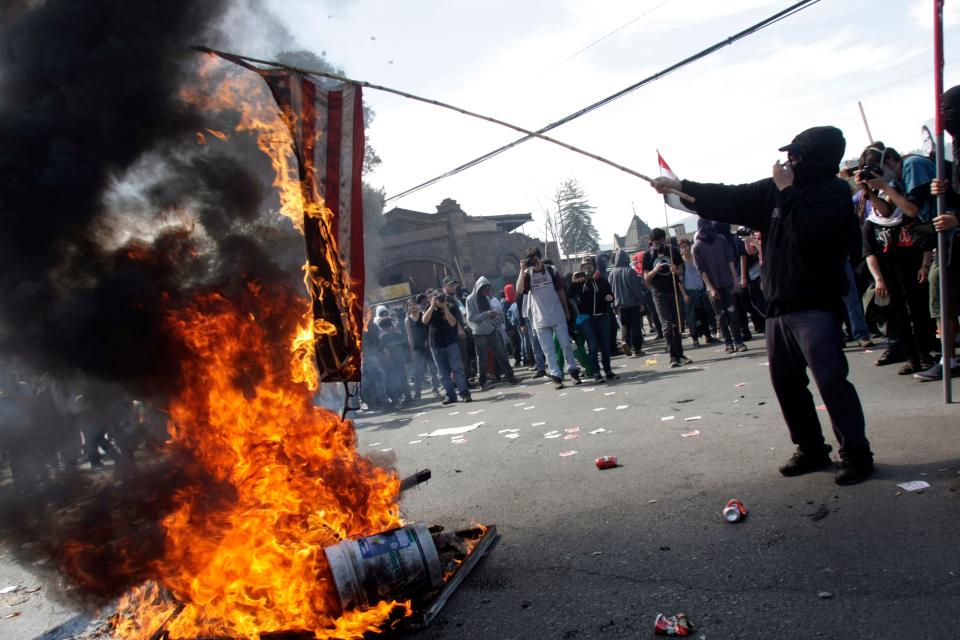
As with previous anniversaries of the coup, Chile is bracing for violence on Monday.
"This moment in history is particularly tense," Jakšić said. "Personally I think it's impossible to have another Pinochet, another massive violation of human rights ... but nothing is off the table."
Amanda Lee Myers covers trending news for USA TODAY. She can be reached at AmandaMyers@usatoday.com and found on X at @AmandaLeeUSAT.
This article originally appeared on USA TODAY: 'The other 9/11': Chile marks 50 years since Pinochet's violent coup

